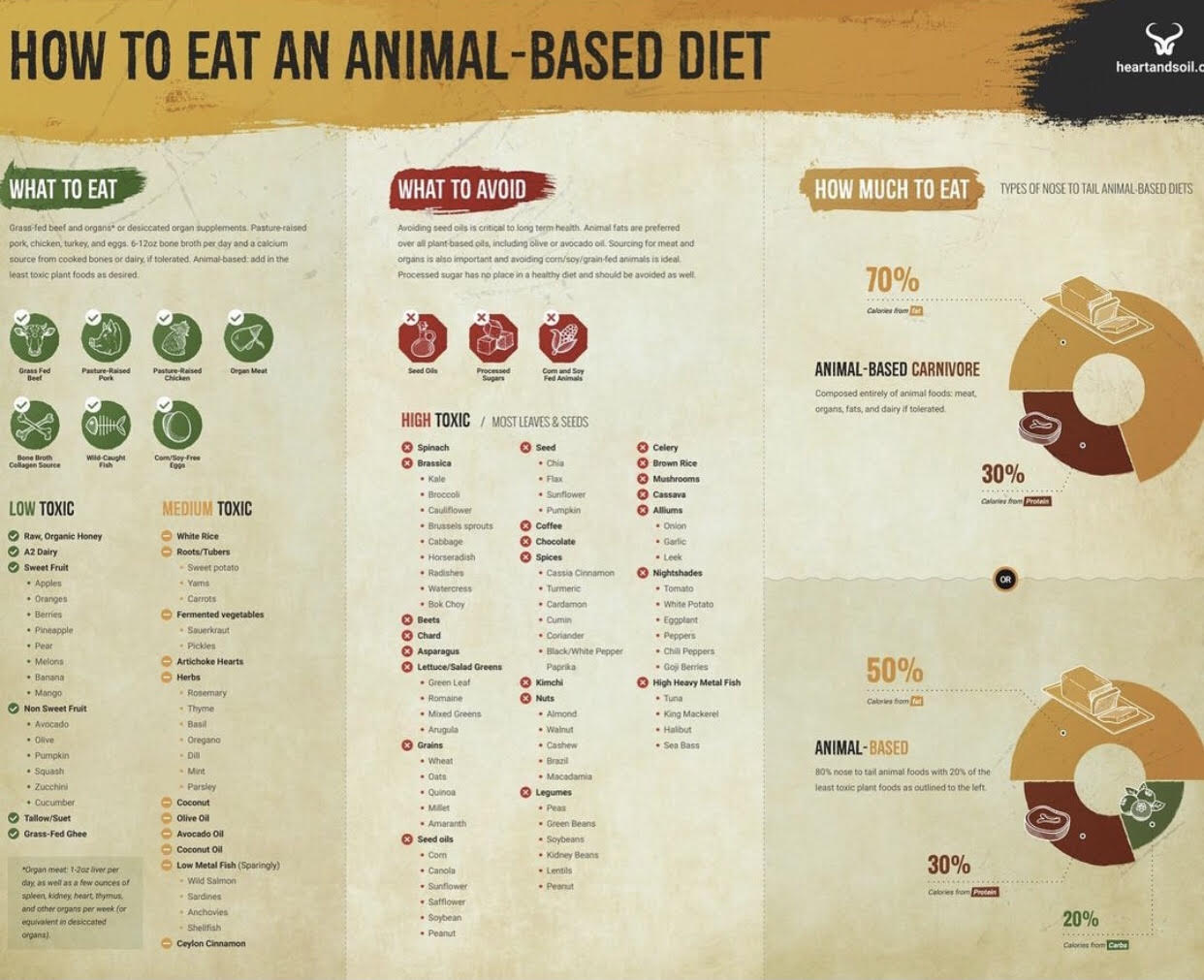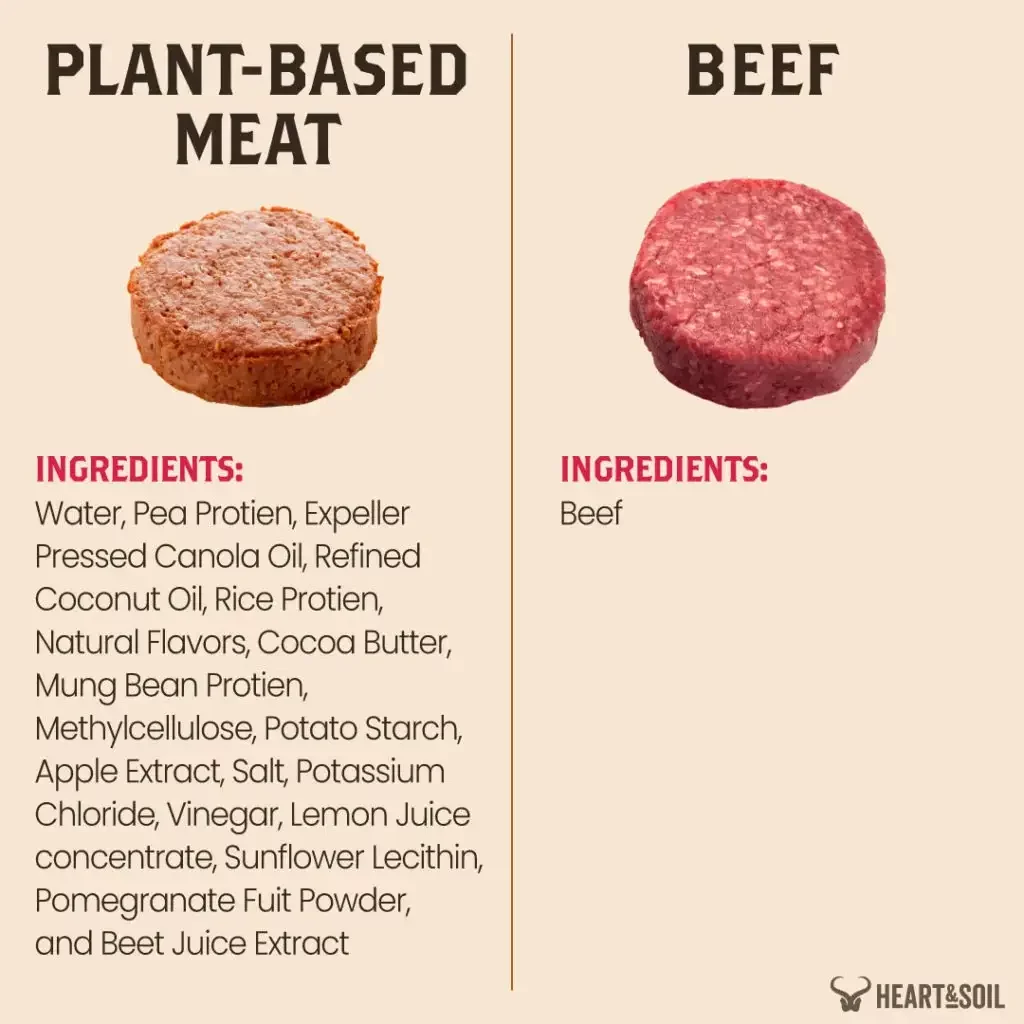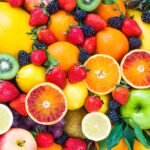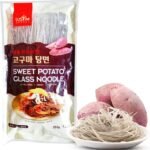Your trusted source for simple, practical nutrition advice and tips for a healthier lifestyle.
An animal-based diet grocery list includes meat, fish, eggs, dairy products, and animal fats. This diet focuses on nutrient-dense, whole foods derived from animals.
An animal-based diet can offer numerous health benefits, such as improved muscle mass, better brain function, and enhanced nutrient absorption. Meat, fish, and poultry provide high-quality protein essential for muscle repair and growth. Eggs and dairy products contribute to a balanced intake of vitamins and minerals.
Animal fats, such as those found in butter and tallow, are excellent sources of energy and can support metabolic health. Prioritizing these nutrient-dense foods can help you maintain a balanced diet, improve overall well-being, and support a healthy lifestyle.

Credit: ash-eats.com
Introduction To Animal-based Diet
An animal-based diet focuses on foods from animals. This includes meat, dairy, eggs, and fish. Many people believe this diet can be very healthy. An animal-based diet can offer essential nutrients. These nutrients are vital for the body.
Benefits Of Animal-based Diet
Following an animal-based diet has many health benefits. Here are some:
- High in protein: Helps build muscles.
- Rich in vitamins: Provides Vitamin B12 and D.
- Essential fatty acids: Good for the brain.
- Iron and zinc: Boosts immune system.
Common Misconceptions
There are many misconceptions about an animal-based diet. Let’s clarify some:
- Myth: It is unhealthy. Fact: It can be very nutritious.
- Myth: Causes heart problems. Fact: Balanced diet reduces risks.
- Myth: Lacks variety. Fact: Offers many food options.
Animal-based Diet Grocery List
Here is a basic grocery list for an animal-based diet:
| Category | Items |
|---|---|
| Meat | Beef, Chicken, Pork, Lamb |
| Fish | Salmon, Tuna, Cod, Trout |
| Dairy | Milk, Cheese, Yogurt, Butter |
| Eggs | Chicken Eggs, Duck Eggs |
Meat And Poultry
When diving into an animal-based diet, meat and poultry are essential. They provide essential nutrients, high-quality protein, and healthy fats. Below, we delve into the best options for beef, chicken, and turkey.
Beef Varieties
Beef is rich in iron, zinc, and vitamin B12. It supports muscle growth and boosts energy levels. Here are some popular beef varieties:
| Type | Description |
|---|---|
| Ground Beef | Versatile for burgers, meatballs, and tacos. |
| Steak | Perfect for grilling and pan-searing. |
| Roast | Ideal for slow cooking and roasting. |
| Ribs | Great for barbecuing and slow cooking. |
Chicken And Turkey Options
Chicken and turkey are leaner options but still full of nutrients. They are excellent sources of protein and low in fat.
Here are some chicken and turkey options:
- Chicken Breast: Low in fat, high in protein. Great for grilling and baking.
- Chicken Thighs: Juicier and more flavorful than breast. Suitable for frying and roasting.
- Whole Chicken: Versatile and economical. Roast or slow-cook for best results.
- Turkey Breast: Lean and high in protein. Ideal for sandwiches and salads.
- Ground Turkey: A healthy alternative to ground beef. Use in tacos, burgers, and meatballs.
Seafood Selections
Seafood is a rich source of nutrients. It offers numerous health benefits. In an animal-based diet, seafood is essential. It provides high-quality protein, omega-3 fatty acids, and essential vitamins. Here, we explore the best seafood selections for your grocery list.
Fish Choices
Fish is a versatile and nutritious option. It is rich in protein and healthy fats.
| Fish Type | Nutritional Benefits |
|---|---|
| Salmon | High in omega-3 fatty acids and vitamin D |
| Tuna | Rich in protein and vitamin B12 |
| Mackerel | Contains omega-3s and selenium |
| Cod | Low in fat and high in protein |
Shellfish Options
Shellfish are nutrient-dense and delicious. They are packed with essential minerals.
- Shrimp: Low in calories, high in protein, and contains selenium.
- Crab: Rich in vitamin B12 and zinc.
- Lobster: Good source of copper and selenium.
- Oysters: High in zinc, iron, and vitamin B12.
- Scallops: Low in fat and high in protein.
These seafood selections will enhance your animal-based diet. They provide a variety of flavors and nutrients. Add them to your grocery list for a balanced and tasty menu.
Dairy Products
Dairy products are a staple in many animal-based diets. They provide essential nutrients like calcium, protein, and vitamins. This section will guide you through the best dairy products to include in your grocery list.
Milk And Cream
Milk and cream are versatile ingredients in an animal-based diet. They come in various forms, each with unique benefits.
| Product | Description |
|---|---|
| Whole Milk | Rich in fat and nutrients. Great for drinking and cooking. |
| Heavy Cream | High-fat content. Perfect for coffee and desserts. |
| Half and Half | A mix of milk and cream. Ideal for beverages and recipes. |
| Buttermilk | Low-fat, fermented milk. Excellent for baking and marinades. |
Cheese Varieties
Cheese is another essential dairy product. It offers diverse flavors and textures. Here are some popular types to include in your list:
- Cheddar Cheese: Hard, aged cheese. Great for sandwiches and cooking.
- Swiss Cheese: Known for its holes. Perfect for melting and snacking.
- Parmesan Cheese: Hard, granular cheese. Ideal for grating over dishes.
- Blue Cheese: Strong flavor with blue veins. Excellent in salads and sauces.
- Mozzarella Cheese: Soft, fresh cheese. Best for pizzas and salads.
- Goat Cheese: Tangy and creamy. Perfect for spreading and crumbling.
Including these dairy products in your animal-based diet can enhance both nutrition and flavor. Always choose high-quality options for the best results.
Eggs And Their Importance
Eggs are a staple in many animal-based diets. They are versatile, affordable, and packed with nutrition. You can enjoy them in numerous ways, making them a valuable addition to your grocery list.
Nutritional Benefits
Eggs are a nutritional powerhouse. They contain essential vitamins and minerals.
| Nutrient | Amount (per large egg) |
|---|---|
| Protein | 6 grams |
| Vitamin A | 5% of daily value |
| Vitamin B12 | 9% of daily value |
| Iron | 1% of daily value |
Eggs also provide healthy fats. They contain omega-3 fatty acids, which are good for the heart. The yolk is rich in antioxidants like lutein and zeaxanthin. These help in maintaining eye health.
Ways To Cook Eggs
Eggs can be cooked in many delicious ways. Here are some popular methods:
- Scrambled: Beat eggs and cook in a pan. Stir until firm.
- Boiled: Place eggs in boiling water. Cook for 6-10 minutes.
- Poached: Crack eggs into simmering water. Cook until whites are set.
- Fried: Cook eggs in a hot pan with a little oil.
For a quick meal, you can also make an omelet. Beat eggs, add fillings like cheese and vegetables, and cook in a pan. Another option is making a frittata. It’s similar to an omelet but cooked slowly and finished in the oven.
For a unique twist, try baking eggs in avocados. Cut an avocado in half, remove the pit, and crack an egg into each half. Bake until the egg whites are set.

Credit: heartandsoil.co
Organ Meats
Organ meats are nutrient-rich and flavorful parts of animals. They include liver, heart, kidneys, and more. Adding these to your diet can boost your health.
Types Of Organ Meats
- Liver: High in vitamins A, B12, and iron.
- Heart: Rich in CoQ10 and B vitamins.
- Kidneys: Packed with protein and healthy fats.
- Brain: Contains omega-3 fatty acids and antioxidants.
- Sweetbreads: Thymus and pancreas, good source of selenium.
Cooking Tips
Cooking organ meats properly is essential. Use these tips to get the best results.
- Liver: Soak in milk to reduce bitterness. Cook quickly over high heat.
- Heart: Marinate overnight for tenderness. Grill or sauté for best flavor.
- Kidneys: Rinse and soak in salt water. Cook gently to avoid toughness.
- Brain: Soak in cold water. Boil or fry for a creamy texture.
- Sweetbreads: Blanch in boiling water. Sauté for a crispy exterior.
Adding organ meats to your grocery list can diversify your diet. They offer unique flavors and impressive nutrients.
Bone Broth And Gelatin
The inclusion of Bone Broth and Gelatin in an animal-based diet offers numerous benefits. These nutrient-rich foods are powerhouses of essential amino acids and minerals. They support joint health, skin elasticity, and gut health.
Health Benefits
Bone Broth is rich in collagen, which supports joint health. The gelatin in bone broth aids digestion and improves gut health. It also contains essential minerals like calcium, magnesium, and phosphorus. These minerals are vital for bone density and overall health.
Gelatin provides similar benefits. It is known for improving skin elasticity and hair growth. Gelatin also helps in reducing inflammation and speeding up muscle recovery. Including gelatin in your diet can enhance your overall well-being.
Preparation Methods
Preparing Bone Broth at home is simple. You’ll need bones from healthy animals, water, and a splash of vinegar. The vinegar helps extract minerals from the bones. Simmer the mixture for 24-48 hours.
- Place bones in a large pot or slow cooker.
- Add water to cover the bones.
- Add a splash of vinegar.
- Simmer for 24-48 hours.
- Strain the broth and store it in the refrigerator.
Making Gelatin is equally straightforward. You can use gelatin powder to create healthy snacks. Mix the gelatin powder with water or fruit juice. Let it set in the refrigerator.
- Mix gelatin powder with water or juice.
- Heat the mixture until the gelatin dissolves.
- Pour into molds or a dish.
- Refrigerate until set.
- Enjoy your homemade gelatin snacks.
Supplemental Foods
Supplemental foods are essential for a balanced animal-based diet. These foods provide extra nutrients that are sometimes lacking in meat, fish, and eggs. This section covers two important categories of supplemental foods: healthy fats and fermented foods.
Healthy Fats
Healthy fats are crucial for an animal-based diet. They provide energy and support brain function. Here are some excellent sources of healthy fats:
- Butter: Opt for grass-fed butter for more nutrients.
- Ghee: Clarified butter, rich in vitamins A, D, and K2.
- Coconut Oil: Great for cooking, boosts metabolism.
- Olive Oil: Use extra virgin olive oil for salads and cold dishes.
- Avocado: High in healthy monounsaturated fats and fiber.
Fermented Foods
Fermented foods are excellent for gut health. They contain probiotics that help digestion. Here are some top fermented foods to include in your diet:
- Yogurt: Choose full-fat, plain yogurt with live cultures.
- Kefir: Fermented milk drink, rich in probiotics.
- Kimchi: Spicy fermented cabbage, full of vitamins.
- Sauerkraut: Fermented cabbage, boosts immune system.
- Kombucha: Fermented tea, improves digestion and boosts energy.
Shopping Tips
Creating an animal-based diet grocery list can be simple with the right tips. Follow these shopping tips to ensure you select the freshest and most nutritious options. This guide covers essential advice on buying fresh produce and storage guidelines.
Buying Fresh
To get the best quality, always choose fresh and local produce. Visit your local farmers’ market to find fresh meat, eggs, and dairy.
- Meat: Look for bright red beef, pink pork, and pale chicken. Avoid meats with a dull color or strong odor.
- Eggs: Choose eggs with clean, uncracked shells. Check the expiration date on the carton.
- Dairy: Select milk and cheese with the latest expiration dates. Ensure the packaging is intact.
Storage Guidelines
Proper storage keeps your animal-based products fresh and safe to eat. Follow these guidelines to extend the shelf life of your groceries.
| Product | Storage Method | Shelf Life |
|---|---|---|
| Meat | Refrigerate at or below 40°F | 3-5 days |
| Eggs | Refrigerate in original carton | 3-5 weeks |
| Dairy | Refrigerate at or below 40°F | 1-2 weeks |
Ensure your refrigerator maintains a temperature of 40°F or lower. Freeze meat if you plan to store it for longer periods. Thaw frozen products in the fridge, not at room temperature.
Frequently Asked Questions
What Do You Eat On An Animal-based Diet?
An animal-based diet includes meat, fish, eggs, dairy products, and animal fats. It focuses on nutrient-dense animal foods.
What Are The List Of Animal-based Food?
Animal-based foods include meat, fish, poultry, dairy products, eggs, and seafood. Popular options are beef, chicken, salmon, milk, cheese, and yogurt.
Can You Eat Grapes On An Animal-based Diet?
Grapes are not typically allowed on a strict animal-based diet. This diet focuses on meat, fish, and animal products.
Can I Eat Fruit On An Animal-based Diet?
Yes, you can eat fruit on an animal-based diet, but in moderation. Fruits provide essential vitamins and nutrients.
Conclusion
Crafting an animal-based diet grocery list can simplify your shopping. Focus on quality meats, eggs, and dairy products. Prioritize fresh, locally sourced items for the best nutrition. This approach supports both your health and local farmers. Start your journey today with a well-planned list and enjoy the benefits of an animal-based diet.





